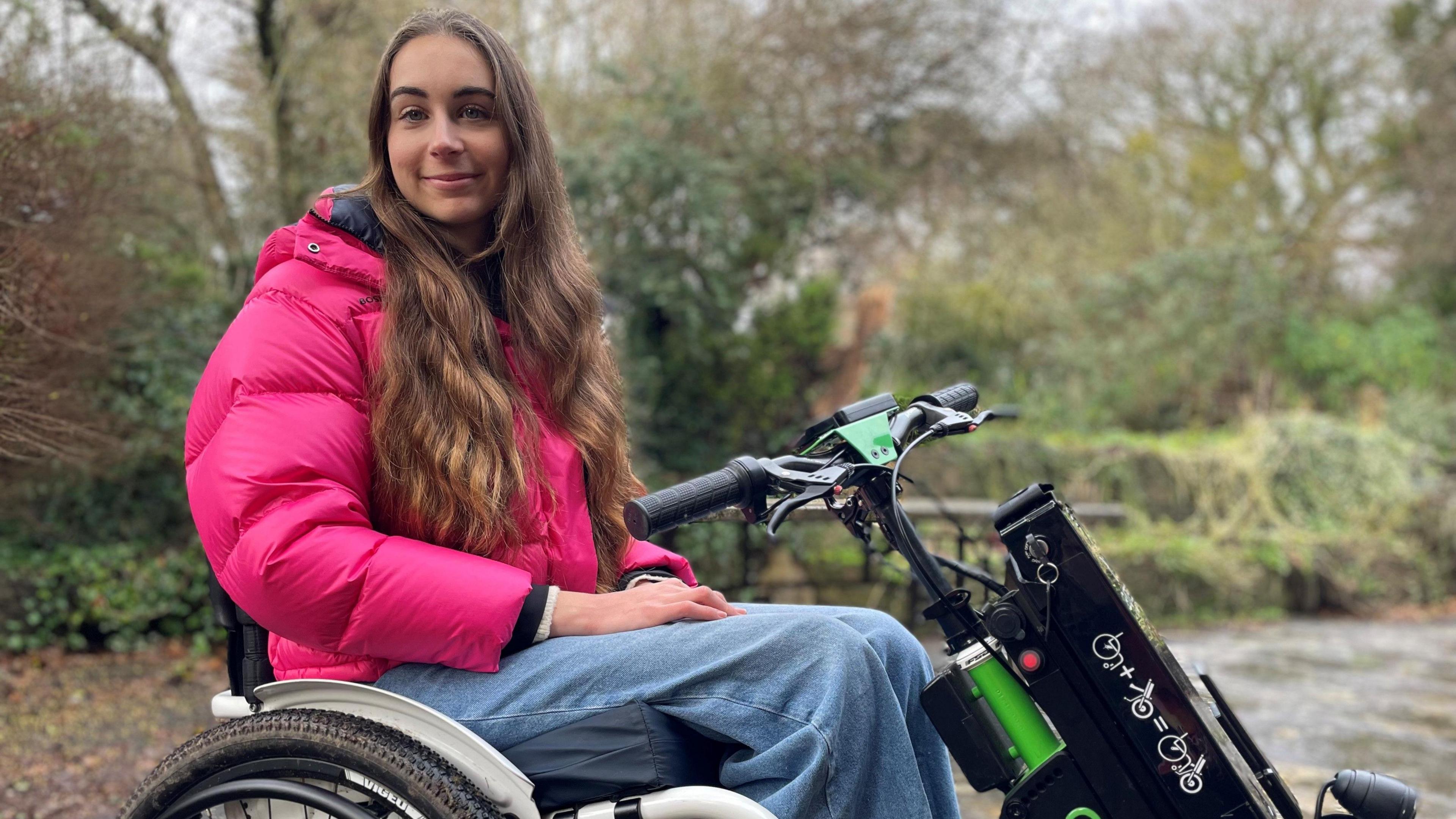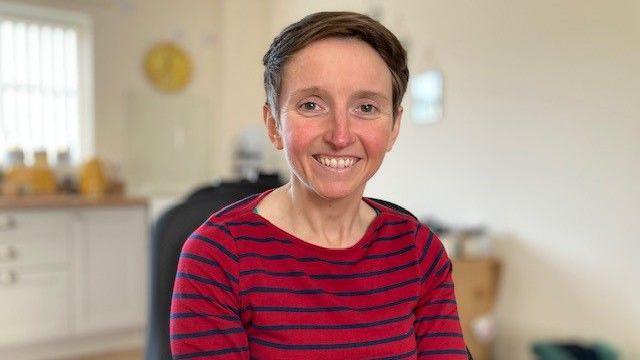Student forced to use loan to buy own wheelchair

Bethany Handley said she didn’t meet the “narrow eligibility criteria” for an NHS wheelchair
- Published
A woman was forced to use her student loan to buy her own wheelchair after being told she did not meet the criteria for an NHS one.
Bethany Handley, 24, faced a choice between that or being stuck in her student house.
She is now campaigning for wider criteria for people to get publicly-funded wheelchairs and more choice about the type they get.
The Welsh government said its wheelchair services were "clinically-led" and offered a "wide range of equipment" to meet individuals' needs.
Bethany, an activist and writer from Monmouth, said she was told she did not meet the "narrow eligibility criteria" for an NHS wheelchair when she was a student.
She said, in order to get one, people had to be able to only walk a few steps or not at all, whereas she could "walk a little bit indoors and needed to use one outdoors".
Bethany said she had been "lucky" to have the money from her student loan to pay privately but wants Wales to have a similar system to England.
Last year the disability campaigner became a full-time wheelchair user and recently got her first NHS chair.
"The NHS chairs are fine, but if you want to be really independent, you ideally need a better chair, so there are lighter chairs on the market and that means it’s easier to lift it into the car... to self-propel, you don’t get as tired or get as much pain," she said.
Tech giving Welsh accents back to disabled people
- Published30 November 2023
The All-Wales Posture and Mobility Service is responsible for the provision of NHS wheelchairs.
People's needs are assessed and can be provided with a range of mobility aids, including wheelchairs.
About 70,000 people use the service and need equipment ranging from standard wheelchairs to specialised or powered chairs.
In England, people can access a personal wheelchair budget and top it up themselves in order to buy chair from an NHS or private service.

Tina Evans said having a wheelchair that allowed her to get out was "really important"
Tina Evans, from the Gwendraeth Valley in Carmarthenshire, is a self-confessed adrenaline junkie.
The 38-year-old blogger and motivational speaker hand cycled from Cardiff to Paris last year to raise money for adaptive sports.
She was diagnosed with Friedreich’s ataxia, external at 16, a condition that progressively damages the nervous system.
"It’s really important to have a suitable chair to live every day like normal, just to get out and about and do the things I want to do," she added.
The disability advocate said the NHS wheelchair she got in 2022 meant she needed help with "simple things that people take for granted, like going to the toilet independently" .
She added: "At the moment, because my chair is not suitable, I’m not always able to do that... it’s not much to ask for, really."
Her friends and family raised £3,000 towards a new electric chair, with Tina paying an extra £2,000.
She said it would have been "really useful" to have a personal budget scheme when she was getting quotes for her powered chair.

Politician Mark Isherwood raised the issue in the Senedd last year
It is an issue that was raised in the Senedd last year by the chairman of the cross-party group on disability, Mark Isherwood.
"It isn't about more money. It's about using the money that's available smarter and giving people the dignity, the respect and the freedom to access, in this case, the wheelchairs they need," he added.
The Member of the Senedd believes the current system is "in breach of" the social model of disability, external the Welsh government has signed up to.
It recognises that people are not disabled by their impairments, but by barriers to access and inclusion.
The Welsh government said the wheelchair service assesses "people who have a permanent physical impairment or condition that affects their ability to walk, and need a wheelchair for more than six months."
It added that its service offered a "wide range of equipment options, which can be augmented to meet individuals’ needs" and was identified from an agreed range and chosen on "clinical appropriateness, ease of maintenance, value for money and availability."
It said it could approve an Individual Patient Funding Request, external if someone's needed equipment outside this range.
